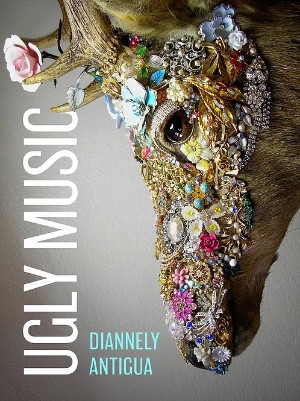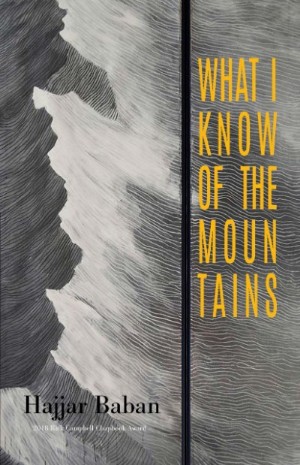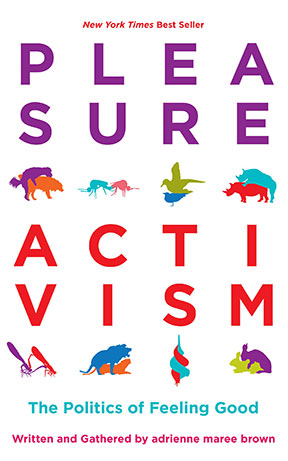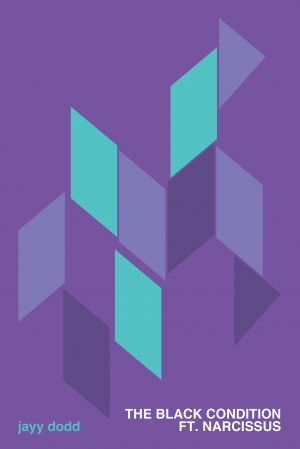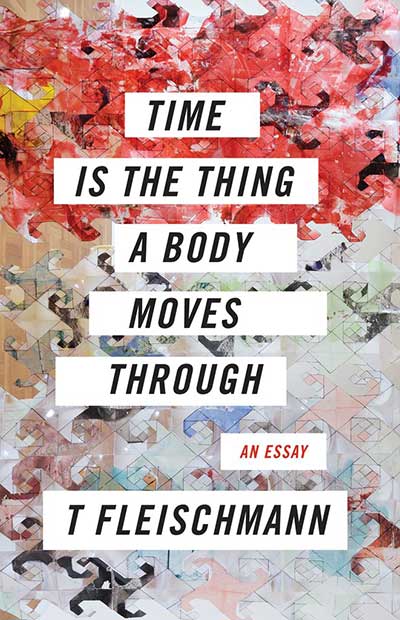Ugly Music by Diannely Antigua
(YesYes Books, 2019)
I want to describe this as a book of poems about having a penetrable body, which we all do, don’t we? In Ugly Music, the body desires, betrays, and makes everything possible, even pleasurable, despite the mind. It reads as a history of learning the erotic, which is sometimes that explosive force that could change everything if we let it, and other times a kind of boredom or even violence. Sometimes given, sometimes taken. Other times kept for the self. Antigua’s candor woke me up, and as for the formal dexterity, I danced with it. Enjambment mixes with voice into something like breath and what flows through it. These poems are irreverent, lucid, and intimate while staying in motion. I’m happy to follow close behind.
“And it will throb, the space
between the first and second time—
Repeat after me: I am the ocean. I am a liver. I am
the bracelet on my wrist.”(Diary Entry #16: About Using My Body)
What I Know of the Mountains by Hajjar Baban
(Anhinga Press, 2019)
I love chapbooks, I do. They take the distillation I love about poetry in the first place, and bring it to bear on the book as a whole. Through erasures, ghazals, a sonnet, and other inventions and conversations through form, Baban’s deeply dialogical poems wonder about family, nation, god, love, and narrative itself. Baban, a Pakistan-born, Afghan Kurdish poet raised in Michigan, just graduated from the First Wave program at University of Wisconsin. I’m so excited to keep reading work by this poet. I’m grateful for the way this chapbook locates in time and place, while situating its poems in a great continuum. Baban makes visible on the page the work of accuracy, generosity, and belonging, and how to “write around the space” of absence.
Could I forget how I, offering an extension, became the search?
There’s a gone light flooding in my mind and so I search
[stanza break]
for something that usually not be wanting touch. Had I known
someone to replace the sounds, I would’ve tried and searched
to recover where they hid the rest of my memory…
(from “Ghazal Saying My Father’s Name Out Loud”)
Pleasure Activism: The Politics of Feeling Good by Adrienne Maree Brown
(AK Press, 2019)
I have been eagerly awaiting this book since reading Brown’s Emergent Strategy: Shaping Change, Changing Worlds, and it’s everything I hoped. I must have recommended it three times the same day I finished it. Her coherent and provocative writings about the political possibilities of pleasure sit here alongside other voices on pleasure activism, such as writings by Audre Lorde and micha cárdenas, and a conversation with Sami Schalk. Overall, the book convinces that feeling good, responsibly and without shame, links us to freedom. Topics range from recognizing what “yes” and “no” feel like in your body, to navigating desire and trauma, to pleasure practices for liberated relationships. brown strategizes a way of understanding pleasure as deeper than selfish hedonism, and activism as something other than joyless work. The book is thick as a brick, and the girth is part of the point; though long, brown’s energetic facilitation, short chapters, and generous citational practices (it’s a party on every page) make this, well, a pleasure to read.
“I have seen, over and over, the connection between tuning into what brings aliveness into our systems and being able to access personal, relational and communal power… Conversely, I have seen how denying our full, complex selves— denying our aliveness and our needs as living, sensual beings— increases the chance that we will be at odds with ourselves, our loved ones, our coworkers, and our neighbors on this planet.” (6)
The Black Condition Ft. Narcissus by jayy dodd
(Nightboat, 2019)
What is reflection for? jayy dodd’s fresh collection fully integrates a remix of the myth of Narcissus into a new spell. One about seeing the self as whole, as divine, as beautiful, even when it takes faith, or forgetting. The situational and sensorial backdrop: gender transition amid inauguration. But what inaugurates in these poems is much more interesting and just plain smart. A voice I come to trust meets rhythmic and sonic radiance; syntactic and formal muscularity vibrates. These are lushly lyrical poems that, even so, live in the world. If duende can come from acknowledgment of the possibility of death, and the fullness of life that comes alongside that realization, then the beloved goblin of goosebumps surely rises up here.
“you couldn’t see nothing but the crackling
of the present. couldn’t hear nothing
but the night finally time un-afraid of its shadow,
the moon stopped boiling blood,
remembered how we always been its creatures
& when the second sun rose we sang to her too.
told her thank you for the land again,
all our blood been the keepers.
this rapture was a home-going back… ”
(from “A Future Yesterday”)
Time Is the Thing a Body Moves Through by T Fleischmann (Coffee House Press, 2019)
“It’s taken a lot of resistance, that I want to leave my gender and my sex life uninscribed— that it took me years to consider the fact that I did not have to name my gender or sexuality at all, and that now I must always tell people that I am not something… I stand by only a quarter of what I said when I was queer.” (64)
A book about Felix Gonzalez-Torres, ice, and sex, but also coming into one’s body and pleasures, and how or why to live and love “uninscribed.” I love the way Fleischman pulls together a range of methods to think through what is possible between and beyond structures of identification, through friendship and other relations, and by remaining a site of change as one moves through time (ages). Narrative, verse, fragment, wormholes of research, personal and cultural histories, and, on a few occasions, photography, all play a role in this book-length essay. Readers of Fleischmann’s first book Syzygy, Beauty, will be delighted to see how they’ve remade the form here. I read this book out loud to a lover in two three-hour stretches over two days. It’s sexy, agile, vulnerable, and smart, and I didn’t want it to end.
“I don’t want to give any more of my touch to language. I just want language to generate more touch.” (94)
